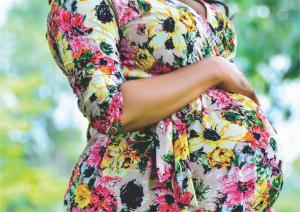Government and partners rally against adolescent pregnancy and unsafe abortions
Abuja, 14 December, 2018 - The Federal Government in collaboration with key partners such as the World Health Organization (WHO) recently resolved to redouble efforts to tackle the menace of unsafe abortions and adolescent pregnancies. Teenage pregnancies particularly in secondary and tertiary institutions are on the rise, leading many of the affected to commit unsafe abortions – as abortion is illegal in Nigeria.
In a 2013 report by the United Nations Population Fund (UNFPA), 29.1% of Nigerian women gave birth before the age of 18, while 97.1% of sexually active girls aged 15-19 admitted to not using any form of contraception. Similarly, in a recent situational analysis conducted by Federal Ministry of Health (FMOH) in collaboration with WHO and other partners, teenage pregnancy emerged as top priority issue in 16 out of 36 States.
As a result, government is not relenting efforts to curb the menace of teenage pregnancy. Dr Chris Ugboko, Director of Gender Adolescent School Health and Elderly Care (GASHE) Division at FMOH stated that through the GASHE programme, government has successfully launched nationwide campaigns particularly in secondary schools to enlighten youths (13-18 years) on the dangers of engaging in unsafe sex. “We have organized talks, distributed flyers, and displayed educational documentaries in at least 200 schools across 20 states in Nigeria,” he explained, “This we believe will eventually help to curb teenage pregnancies and prevent unsafe abortions”
“Some of the inherent risks with teenage pregnancy include low birth weight or premature birth, anemia (low iron levels), high blood pressure, pregnancy induced hypertension and an increased chance of Obstetric fistula - one of the most severe childbirth-related complications,” Dr Hamidah Adeyanju, an Abuja-based obstetrician said. She also warned, “Teenage mothers are also exposed to higher risks of going through post-natal depression and losing their babies as a result of poor nutrition and improper care”.
In other efforts to support government, WHO published documents facilitating implementation and prioritization of adolescent pregnancy prevention in adolescent health, including global standards for adolescent friendly health services and the Accelerated Action for Adolescent Health Guidance. In addition, WHO is currently synthesizing recommendations on adolescent sexual and reproductive health into a Compilation Tool.
“Families and communities play key roles in preventing adolescents from being exposed to these menace, because with the right information, parents are well empowered to support their children in making the informed decision when they are faced with compromising situation, said Dr Clement Lugala, the Officer in Charge (OIC), at WHO Nigeria.
The OIC said ‘’WHO is committed to reaching the Sustainable Development Goals (SDGs) targets 3.1 and 3.7 associated with adolescents’ health and development by launching the Adolescent flagship programme which Nigeria is one of the beneficiaries’’.
Kindly follow us on Social Media:



